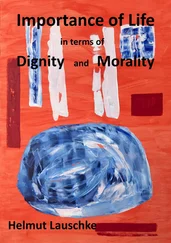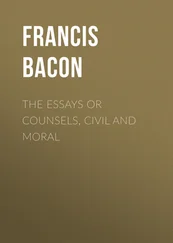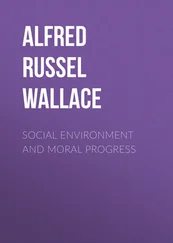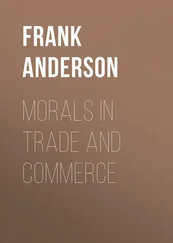This, then, is why the principle of alternate possibilities is mistaken. It asserts that a person bears no moral responsibility – that is, he is to be excused – for having performed an action if there were circumstances that made it impossible for him to avoid performing it. But there may be circumstances that make it impossible for a person to avoid performing some action without those circumstances in any way bringing it about that he performs that action. It would surely be no good for the person to refer to circumstances of this sort in an effort to absolve himself of moral responsibility for performing the action in question. For those circumstances, by hypothesis, actually had nothing to do with his having done what he did. He would have done precisely the same thing, and he would have been led or made in precisely the same way to do it, even if they had not prevailed.
We often do, to be sure, excuse people for what they have done when they tell us (and we believe them) that they could not have [838] done otherwise. But this is because we assume that what they tell us serves to explain why they did what they did. We take it for granted that they are not being disingenuous, as a person would be who cited as an excuse the fact that he could not have avoided doing [38]what he did but who knew full well that it was not at all because of this that he did it.
What I have said may suggest that the principle of alternate possibilities should be revised so as to assert that a person is not morally responsible for what he has done if he did it because he could not have done otherwise. It may be noted that this revision of the principle does not seriously affect the arguments of those who have relied on the original principle in their efforts to maintain that moral responsibility and determinism are incompatible. For if it was causally determined that a person perform a certain action, then it will be true that the person performed it because of those causal determinants. And if the fact that it was causally determined that a person perform a certain action means that the person could not have done otherwise, as philosophers who argue for the incompatibility thesis characteristically suppose, then the fact that it was causally determined that a person perform a certain action will mean that the person performed it because he could not have done otherwise. The revised principle of alternate possibilities will entail, on this assumption concerning the meaning of ›could have done otherwise‹, that a person is not morally responsible for what he has done if it was causally determined that he do it. I do not believe, however, that this revision of the principle is acceptable.
Suppose a person tells us that he did what he did because [40]he was unable to do otherwise; or suppose he makes the similar statement that he did what he did because he had to do it. We do often accept statements like these (if we believe them) as valid excuses, and such statements may well seem at first glance to invoke the revised principle of alternate possibilities. But I think that when we accept such statements as valid excuses it is because we assume that we are being told more than the statements strictly and literally convey. We understand the person who offers the excuse to mean that he did what he did only because he was unable to do otherwise, or only because he had to do it. And we understand him to mean, more particularly, that when he did what he did it was not because that was what he really wanted to do. The principle of alternate possibilities should thus be replaced, in my opinion, by the following principle: a person is not morally responsible for what he has done if he did it only because he could not have done otherwise. This principle does not [839] appear to conflict with the view that moral responsibility is compatible with determinism.
The following may all be true: there were circumstances that made it impossible for a person to avoid doing something; these circumstances actually played a role in bringing it about that he did it, so that it is correct to say that he did it because he could not have done otherwise; the person really wanted to do what he did; he did it because it was what he really wanted to do, so that it is not correct to say that he did what he did only because he could [42]not have done otherwise. Under these conditions, the person may well be morally responsible for what he has done. On the other hand, he will not be morally responsible for what he has done if he did it only because he could not have done otherwise, even if what he did was something he really wanted to do.
Harry G. Frankfurt
The Rockefeller University
[7]Alternative Möglichkeiten und moralische Verantwortung
In beinahe allen neueren Untersuchungen des Problems der Willensfreiheit spielt ein Prinzip eine dominante Rolle, das ich »Prinzip alternativer Möglichkeiten« nennen werde. Diesem Prinzip zufolge ist eine Person nur dann für das, was sie getan hat, moralisch verantwortlich, wenn sie anders hätte handeln können. Seine genaue Bedeutung ist umstritten, insbesondere bezüglich der Frage, ob jemand, der es akzeptiert, auf die Meinung festgelegt ist, dass moralische Verantwortung und Determinismus miteinander unvereinbar sind. Praktisch niemand scheint jedoch geneigt, zu leugnen oder auch nur anzuzweifeln, dass das Prinzip alternativer Möglichkeiten (in irgendeiner Variante) wahr ist. Generell erschien es so überwältigend plausibel, dass einige Philosophen es sogar als eine Wahrheit a priori betrachtet haben. Leute, deren eigene Theorien der Willensfreiheit oder der moralischen Verantwortung zutiefst unvereinbar miteinander sind, erblicken in ihm offenbar eine solide und praktische gemeinsame Grundlage, auf der sie ihre gegensätzlichen Standpunkte in vorteilhafter Weise einnehmen können.
Das Prinzip alternativer Möglichkeiten ist jedoch falsch. Eine Person kann sehr wohl für etwas, was sie getan hat, moralisch verantwortlich sein, obwohl sie [830] nicht anders hätte handeln können. Die Plausibilität des Prinzips ist eine Illusion, die sich auflösen lässt, indem man die relevanten moralischen Phänomene genauer unter die Lupe nimmt.
Will man das Prinzip alternativer Möglichkeiten veranschaulichen, so liegt es nahe, an Situationen zu denken, in denen dieselben Umstände sowohl bewirken, dass eine Person etwas tut, als auch, dass sie es ihr unmöglich machen, zu vermeiden, dass sie dieses tut. Dazu zählen beispielsweise Situationen, in denen eine Person dazu genötigt wird, etwas zu tun, oder in denen sie durch hypnotische Suggestion zum Handeln bewogen wird, oder in denen ein innerer Drang sie dazu antreibt, das zu tun, was sie tut. In solchen Situationen machen es bestimmte Umstände der Person unmöglich, anders zu handeln, und dieselben Umstände führen dazu, dass sie tut, was sie tut, was immer das auch sein mag.
Es kann jedoch auch Umstände geben, die hinreichende Bedingungen dafür darstellen, dass eine bestimmte Handlung von jemandem vollzogen wird und die es der Person daher unmöglich machen, anders zu handeln, die die Person jedoch nicht zum Handeln zwingen oder ihre Handlung in irgendeiner anderen Weise auslösen. Eine Person kann etwas unter Umständen tun, die ihr keine Handlungsalternative lassen, ohne dass diese Umstände sie tatsächlich dazu bewegen oder sie dazu verleiten, dies zu tun – ohne dass die Umstände auch nur die geringste Rolle dabei spielen, wie die Handlung zustande kommt.
Eine Untersuchung von Situationen, in denen solche Umstände herrschen, erweckt meiner Ansicht nach Zweifel daran, dass es für die Frage nach der moralischen Verantwortung relevant ist, ob eine Person, die etwas getan hat, nicht auch anders hätte handeln können. Ich werde ei [11]nige Beispiele dieser Art im Kontext einer Diskussion von Nötigung entwickeln und dafür plädieren, dass unsere Intuitionen bezüglich dieser Beispiele das Prinzip alternativer Möglichkeiten tendenziell entkräften. Sodann werde ich das Prinzip auf allgemeinere Weise diskutieren, erklären, was ich daran für falsch halte, sowie knapp und ohne weitere Begründung darlegen, wie es zweckmäßig revidiert werden könnte.
Читать дальше












